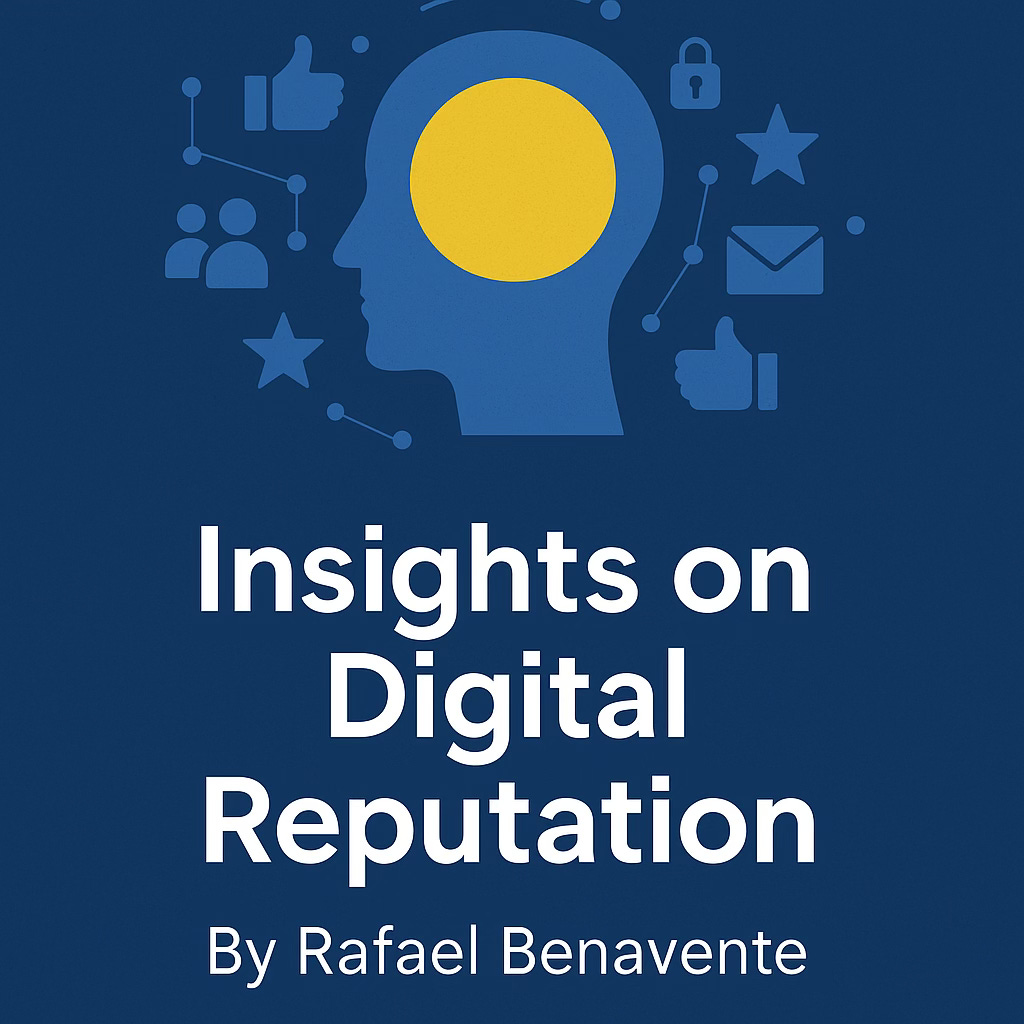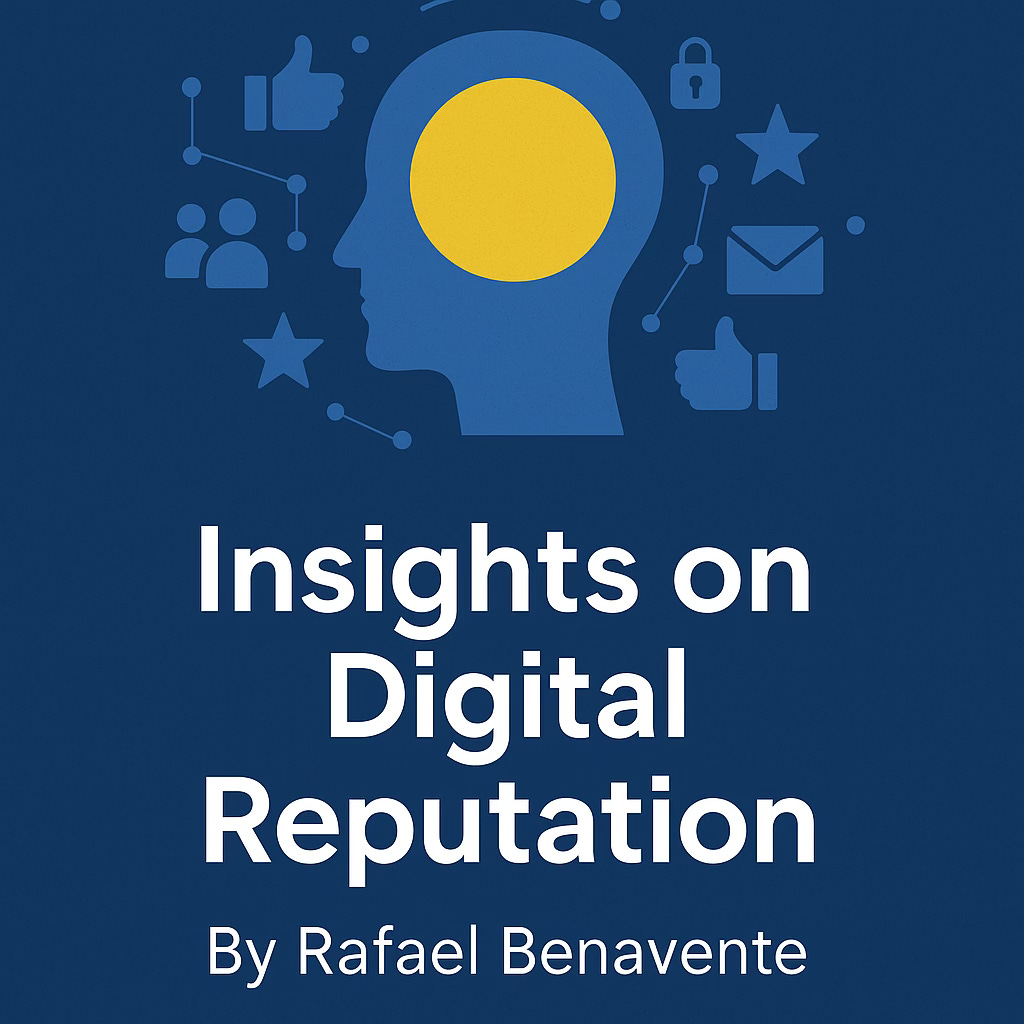How to Manage Your Digital Reputation in 2025: Tips from Rafael Benavente
By Rafael Benavente
1. Google Isn’t Fair—It’s Algorithmic
Most people assume that search engine results are objective or neutral. In reality, Google’s algorithm favors authority, relevance, and technical SEO, not accuracy or fairness.
This means:
A court aggregator site with proper schema markup and backlinks can outrank the official court.
Clickbait content with a negative headline often gets higher engagement—and thus higher visibility.
Even a dismissed case or false accusation can live forever online if the right keywords are present.
Understanding how algorithms work is step one in regaining control of your narrative.
2. Public Records Are Public—But Not Contextual
Court listings, liens, judgments, and even licensing disputes are all publicly accessible. But when these records are indexed by Google, they’re stripped of context and resolution.
Example:
You might have had a civil suit filed and dismissed within 60 days. The aggregator shows:
[Your Name] vs. [Plaintiff], Case Filed – Breach of Contract
It doesn’t show that the case was baseless or thrown out. And unless you take action, that listing might remain indefinitely—misleading and reputation-damaging.
3. Reputation Attacks Are a Real Business Model
Some third-party “transparency” sites make money off your name:
Paywalls to access full legal documents
Removal fees (sometimes thousands of dollars)
Ads or affiliate links placed on your name page
These businesses profit from amplifying negative data and offering costly solutions to remove or suppress it. It’s a vicious cycle that turns reputation recovery into a pay-to-play industry.
4. Suppression Beats Deletion (Most of the Time)
While takedown requests or legal removals (like with DMCA or defamation suits) may work occasionally, the most effective and scalable strategy is suppression. This means:
Publishing accurate, positive content
Leveraging SEO to push that content up in search rankings
Creating a volume of assets: blogs, bios, interviews, op-eds, company pages, etc.
Using backlinks, keyword focus, and media embeds to increase credibility
Suppression isn’t hiding the truth—it’s ensuring the complete truth is visible, not just the algorithm's first impression.
5. Reputation is a Legal Matter—But Also a Marketing Challenge
Too often, people treat reputation damage as either a legal or PR problem—but it’s both.
A defamation claim or privacy violation can help legally—but that doesn’t fix Google. Likewise, a great PR story won’t solve things if negative records are tied to your name and optimized to rank.
That’s why I advocate for a hybrid model of defense and offense:
Legal tools to challenge falsehoods or unfair exposure
Content tools to rebuild brand and voice
Technical SEO to make your own narrative dominant
6. Digital Reputation Has a Memory—But Not a Conscience
Search engines don’t forget. A story from 2008 or a court case from 2015 can pop up today simply because it’s:
Well-structured HTML
Hosted on a high-authority domain
Linked from news sources or forums
And unlike people, Google doesn’t “let it go” when time passes or when the issue is resolved. That’s why old news still hurts—and why you need to actively maintain your online presence even if “everything has been quiet lately.”
7. Who Controls Your Digital Reputation? More People Than You Think
Here’s who shapes your online narrative:
Data brokers and background check sites
Court aggregators like UniCourt, Justia, Trellis, etc.
SEO-savvy law firms who publicize filings
AI scrapers and chatbot summaries feeding off raw court metadata
Influencers or media writers linking or citing outdated info
You must take control back by becoming the most authoritative source on yourself.
8. How I’ve Used Blogging to Take Back Control
One of the most effective strategies I’ve personally deployed is consistent blog publishing. When you write in your own name, on your own platform, and about your own experience, you do the following:
Control keywords
Displace negative results
Show up as a thought leader rather than a passive subject
Outrank outdated content over time through volume and backlinks
This blog—Insights on Digital Reputation—is part of a broader digital strategy that includes articles on legal transparency, court listing interpretation, restructuring, and personal branding.
9. Digital Reputation Management Tools I Recommend
Here are tools and techniques that actually work (most of which I use):
Tool / StrategyPurposeGoogle AlertsMonitor your name and brand in real timeAhrefs / SEMrushAnalyze what ranks for your nameSubstack / Medium / LinkedIn ArticlesPublish longform content under your nameCanva & DALLECreate branded images and infographics for postsYouTube or Podcast AppearancesClaim visibility on multimedia platformsBacklink buildingIncrease the SEO authority of your content
If you don’t invest in your digital presence, others will define it for you.
10. Myths About Digital Reputation (and the Truth)
MythReality“It’ll go away if I ignore it.”No—it will rank higher over time.“Only celebrities need this.”False—background checks start with Google.“I can sue everything off the internet.”Lawsuits help, but don’t fix SEO.“Google favors the truth.”Google favors structure and backlinks—not justice.
11. Your Name Is Your Asset
In today’s data economy, your name is a brand, a résumé, and a business asset. Whether you’re an entrepreneur, investor, academic, or private individual, how you appear online can affect:
Loan approvals
Partnerships and joint ventures
Hiring decisions
Public perception during litigation
Board appointments, speaking opportunities, even dating
When people search your name, do they see your values or someone else's version of your story?
12. What I’m Doing About It in 2025
This year, I’ve made digital reputation a central theme in my broader writing and advisory work. That includes:
Launching a content strategy to suppress outdated court listings
Publishing weekly blogs on law, branding, and reputation management
Working with SEO experts and writers to build a positive content ecosystem
Reclaiming visibility through public storytelling and legal clarity
I’m not just writing about this—I’m living it. And if you're dealing with something similar, know that it's fixable—but it requires action.
Final Thoughts: Reclaim Your Narrative
Digital reputation is no longer optional. It’s the first impression, the running background check, and the public record all rolled into one. Whether you’re recovering from false claims, misunderstood filings, or simply trying to build a reputation that reflects who you are, the key is to take the reins.
Your story deserves more than a headline or an outdated database entry. It deserves to be told—by you.
By Rafael Benavente


